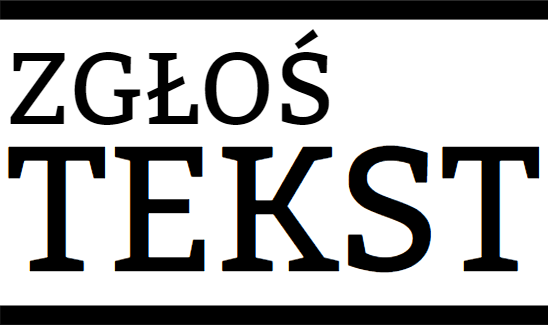Podobne czy różne? Jak młodzi ludzie konceptualizują konwencjonalne i wirtualne obywatelstwo w relacji do edukacji obywatelskiej
DOI:
https://doi.org/10.34813/04coll2023Słowa kluczowe:
młodzież, internet, obywatelstwo, edukacja obywatelska, wirtualne obywatelstwoAbstrakt
Rozwój nowych technologii zaciera granicę między rzeczywistością a światem wirtualnym. Należy zbadać, w jakim stopniu proces ten wpływa na obywatelstwo. Celem badania było sprawdzenie, w jaki sposób młodzi ludzie, którzy niedawno uzyskali formalne prawa obywatelskie, konceptualizują zjawiska obywatelstwa i wirtualnego obywatelstwa w kontekście edukacji obywatelskiej. Przeprowadzono badanie internetowe wśród 145 studentów polskich uczelni wyższych w wieku 18–23 lat (71% kobiet). Podejście Associative Group Analysis (AGA), które wspiera analizy jakościowe i ilościowe, zostało wykorzystane do zebrania konstruktów asocjacyjnych i konceptualizacji badanych zjawisk. Wyniki wskazują, że obywatelstwo jest postrzegane w wymiarze kolektywno-państwowym z silnym podtekstem nacjonalistycznym i patriotycznym. Obywatelstwo wirtualne jest pojęciem indywidualno-interpersonalnym, które wiąże się z przynależnością do społeczności globalnej.
Bibliografia
Davies, I., Ho, L. C., Kiwan, D., Peck, C. L., Peterson, A., Sant, E., & Waghid, Y. (Eds.). (2018). The Palgrave handbook of global citizenship and education. Palgrave Macmillan.
Ekes, J. (1994). Polska: przyczyny słabości i podstawy nadziei. Instytut Wydawniczy PAX.
Ekman, J., & Amnå, E. (2012). Politicalparticipation and civic engagement: Towards a new typology. Human Affairs, 22(3), 283–300. https://doi.org/10.2478/s13374-012-0024-1
European Commission/EACEA/Eurydice (2017). Citizenship educationat School in Europe − 2017. Eurydice Report. Publications Office of the European Union, Luxembourg. https://eurydice.org.pl/wp-content/uploads/2017/11/215_EN_Citizenship_2017_N.pdf.
Farthing, R. (2010). The politics of youthful antipolitics: Representing the “issue” of youth participation in politics. Journal of Youth Studies, 13(2), 181–195. https://doi.org/10.1080/13676260903233696
Gibson, R., & Cantijoch, M. (2013). Conceptualizing and measuring participation in the age of the internet: Is online political engagement really different to offline? The Journal of Politics, 75(3), 701–716. https://doi.org/10.1017/s0022381613000431
Kelly, R. M. (1985).The Associative group analysis method and evaluation research. Evaluation Review, 9(1), 35–50.
Kennedy, K. J. (2007). Student constructions of “active citizenship”: What does par-ticipation mean to students? British Journal of Educational Studies, 55(3), 304–324. http://www.jstor.org/stable/4620571
Kennedy, K.J. (2009). The citizenship curriculum: Ideology, content and organiza-tion. In: J. Arthur, I. Davies, & C. Hahn (Eds.),Education for citizenship and democ-racy (483–491). Sage Publications.
Kennedy, K.J. (2018). Understanding post-soviet transition as context for the devel-opment of active citizenship. In: B. Krzywosz-Rynkiewicz, A.M. Zalewska, & K.J. Kennedy (Eds.), Young people and active citizenship in post-Soviet times(3–15). Routledge.
Kerr, D. (1999). Citizenship education: An international comparison. Qualifications and Curriculum Authority.
Koseła, K. (2004). Młodzi obywatele –podsumowanie. In: R. Dolata, K. Koseła, A.Wiłkomirska, & A. Zielińska (Eds.), Młodzi obywatele. Wyniki międzynarodowych badań młodzieży(221–242). Wydawnictwo Uniwersytetu Warszawskiego.
Krzywosz-Rynkiewicz, B., Zalewska, A.M., & Kennedy K.J. (Eds). (2018). Young people and active citizenship in post-Soviet times. Routledge.
Krzywosz-Rynkiewicz, B., &Zalewska, A.M. (2018). Poland: new opportunities, disillusioned youth. In: B. Krzywosz-Rynkiewicz, A.M. Zalewska, & K.J. Kennedy (Eds.), Young peopleand active citizenship in post-Soviettimes(110–123). Routledge.
Krzywosz-Rynkiewicz, B., & Zalewska, A.M. (2017). Measuring young people’s citizenship activity. Citizenship Teaching and Learning, 12(2), 141–150. https://doi.org/10.1386/ctl.12.2.141_1
Leek, J. (2016). Global citizenship education in school curricula. A Polish perspective. Journal of Social Studies Education Research, 7(2), 51–74.
Loader, B.D. (2007). Young citizens in the digital age: Political engagement, young people and new media. Routledge.
Marino, M.T, & Hayes, M.T. (2012). Promoting inclusive education, civic scientific literacy, and global citizenship with videogames. Cultural Studies of Science Education, 7, 945–954. https://doi.org/10.1007/s11422-012-9429-8
Mossberger, K., Tolbert, C.J., & McNeal, R.S. (2008). Digital citizenship: the internet, society, and participation. MIT Press.
Muñoz, Y.J., & El-Hani, C.N. (2012). The student with a thousand faces: From the ethics in video games to becoming a citizen. Cultural Studies of Science Education, 7, 909–943.
Parekh, B. (2003). Cosmopolitanism and global citizenship. Review of International Studies, 19, 3–17. https://doi.org/10.1017/S0260210503000019
Pathak-Shelat, M. (2018). Social Media and Youth: Implications for global citizen-ship education. In: I. Davies, L.C. Ho, D. Kiwan, C.L. Peck, A. Peterson, E. Sant, & Y. Waghid (Eds.), The Palgrave handbook of global citizenship and education(539–555). Palgrave Macmillan.
Plebańska, M. (Ed.).(2017). Polska szkoła w dobie cyfryzacji. Diagnoza 2017. https://www.cyfrowobezpieczni.pl/uploads/filemanager/raporty/RAPORT_CYFRYZCJA_SZKOL_2017.pdf.
Prensky, M. (2001). Digital natives, digital immigrants. On the Horizon, 9(5), 1–6. https://doi.org/10.1108/10748120110424816
Ross, A., & Davies, I. (2018). Europe and Global Citizenship. In: I. Davies, L.C. Ho, D. Kiwan, C.L. Peck, A. Peterson, E. Sant, & Y. Waghid (Eds.), The Palgrave hand-book of global citizenship and education (21–36). Palgrave Macmillan.
Seemiller, C., Grace, M. (2017). Generation Z: Educating and engaging the next gen-eration of students. About Campus, 22, 21–26. https://doi.org/10.1002%2Fabc.21293
Shapiro, J. (2018). Digital play for global citizens. The JoanGanz Cooney Center at Sesame Workshop.
Sherrod, L.R, Torney-Purta, J., & Flanagan, C. (Eds.).(2010). Handbook of research on civic engagement in youth. John Wiley & Sons, Inc.
Szalay, L.B., &Brent, J.E. (1967). The analysis of cultural meanings through free verbal associations. Journal of Social Psychology, 72, 161–187.
Szalay, L.B., & Bryson, J.A. (1974). Psychological meaning: Comparative analyses and theoretical implications. Journal of Personality and Social Psychology, 30(6), 860–870.
Torney-Purta, J., Lehmann, R, Oswald, H., & Schulz, W. (2001). Citizenship and edccation in twenty-eight countries: Civic knowledge and engagement at age fourteen.IEA: The International Association for the Evaluation of Educational Achievement. http://pub.iea.nl/fileadmin/user_upload/Publications/Electronic_versions/CIVED_ Phase2_Age_Fourteen.pdf.
Wike, R., & Castillo, A. (2018). Many around the world are disengaged from politics [Report]. Pew Research Center. https://www.pewresearch.org/global/2018/10/17/in-ternational-political-engagement/.
Wood, P.B. (2008). The impossibility of global citizenship. Brock Education: AJournal of Educational Research and Practice, 17, 22–37.
Pobrania
Opublikowane
Numer
Dział
Licencja
Prawa autorskie (c) 2023 Beata Krzywosz-Rynkiewicz, Martyna Kotyśko

Utwór dostępny jest na licencji Creative Commons Uznanie autorstwa – Użycie niekomercyjne – Bez utworów zależnych 4.0 Międzynarodowe.






